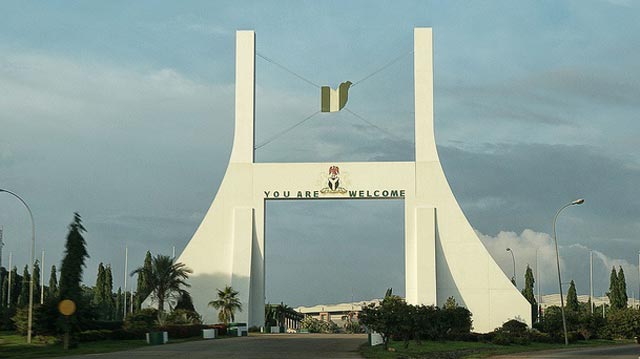Over the years, residents of satellite towns in the Federal Capital Territory (FCT) have expressed neglect in terms of provision of basic infrastructure.
They observe that in spite of promises by successive FCT administrations on development, satellite towns such as Gwagwalada, Bwari, Kuje, Lugbe and Abaji, among others, have remained underdeveloped.
Analysts blame the increasing rate of illiteracy, rural-urban migration and underdevelopment in rural communities on failure of government to bridge the gap between the rich and the poor in terms of providing the basic amenities.
They believe that a nation develops in relation to its achievements in education, provision of infrastructure as well as the security of lives and property of its citizens.
Mrs Caroline Malu, a resident of one of the towns the area, said most people living in the community depend on water vendors and private boreholes for their daily supply.
Malu called for the assistance of relevant authorities to provide potable water to ease the suffering of the people.
Similarly, Mr Julius Agule who operates a car wash in Gwagwa community, near Abuja, said he relied more on the vendors to wash cars.
“In a day, we spend not less than N2,000 just to access water for our business. The pipe borne water in the area barely function and we have to satisfy our customers or lose them,’’ he said.
Apart from the challenge of water supply, the Emir of Jiwa, Alhaji Idris Musa and residents of Idu, Gwagwa, and Karmo communities of Abuja Municipal Area Council (AMAC), called for the upgrade of the primary healthcare centres in the area to general hospitals.
Musa blamed the overstretching of existing healthcare centres in the communities on increasing population.
He said the current structure where the area councils were responsible for the funding of primary healthcare would not meet demand of healthcare services.
The monarch expressed concern about the challenges faced by residents of Jiwa community and its environs, particularly during birth delivery.
“We have recorded several deaths among our women who, in the course of delivery, are referred to the general hospital in Gwarimpa.
“The challenge is that, in most cases, the vehicle conveying the patient are held on the road by gridlock and before you know it the patient gives up,’’ he said.
Sharing similar sentiments, Mrs Blessing Osita, a resident of Idu community, called for the upgrade of the three primary healthcare centres in Idu, Gwagwa, Karmo and Jiwa communities, to general hospitals.
According to her, the centres need to be upgraded, equipped with drugs, medical facilities and also, commence 24 hours operation.
She said the idea was to reduce incidences of death arising from referral cases from the centres to General Hospital, Gwarimpa.
Residents of the communities have also decried the deplorable state of roads in the area, complaining that the situation had deteriorated because of lack of attention on the part of government.
Mr Okechukwu Onuche, a businessman in Gwagwa, said the road had been in deplorable state for more than 15 years.
However, Mrs Patience Olaloye, the Head of Information in AMAC, said the current administration of the council had pledged to meet the basic and essential needs of the people living within the area.
Olaoye said the council was always eager to provide more amenities within the power of its budgetary allocation.
“AMAC has 12 political wards with more than 100 villages, 12 elected councillors, it is expected that the councillors will go back to their wards and look for what the council can do for them.
“They liaise with the community leaders and see what the immediate needs of the community are and come back to tell the council their needs,’’ she said.
She said the Chairman of AMAC, Abdullahi Candido, had promised that no community would be left out in the provision of amenities in the area council.
The Minister FCT, Malam Muhammad Bello had earlier said satellite towns and rural areas in the FCT would witness massive infrastructural development in the next two years.
Bello promised that many abandoned construction sites would become alive while many jobs would be saved.
Mr Emeka Anyawu, a businessman in Idu community, appealed to the Nigerian Electricity Regulatory Commission to come to the aid of the people on what she described as persistent power outage that had adversely affected business in the area.
According to her, through community effort, residents have been able to purchase three transformers to power the community which are not enough.
However, the Public Relations and Media Officer of Abuja Electricity Distribution Company (AEDC), Mr Ahmed Shakarau, said the challenge of incessant power outage could be from overloading of the transformer serving the area.
He said he would forward a former complaint to the manager responsible for the area to find out what the problem was with a view to finding a lasting solution.
But Mr Ernest Mupwaya, the Managing Director of AEDC, said the company had so far spent N6.5 billion on improving infrastructure in its coverage area.
According to him, the breakdown of the N6.5bn spent included N900 million for the replacement of more than 374 faulty transformers, procurement of 145 vehicles to ease logistic issues.
“It includes bush clearing of more than 11,400-kilometre power lines to check avoidable power outages in its franchise area.
“We have maintained 8,138 distribution substation transformers since 2016 out of the 12,000 units we have,’’ he said.



Leave a Reply